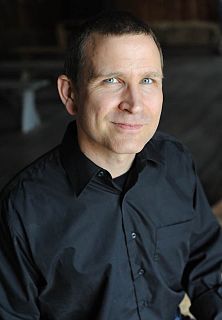A Quote by Jean Vanier
If we are to grow in love, the prisons of our egoism must be unlocked. This implies suffering, constant effort and repeated choices.
Related Quotes
In this life we have to make many choices. Some are very important choices. Some are not. Many of our choices are between good and evil. The choices we make, however, determine to a large extent our happiness or our unhappiness, because we have to live with the consequences of our choices. Making perfect choices all of the time is not possible. It just doesn't happen. But it is possible to make good choices we can live with and grow from.
Our minds must relax: they will rise better and keener after rest. Just as you must not force fertile farmland, as uninterrupted productivity will soon exhaust it, so constant effort will sap our mental vigour, while a short period of rest and relaxation will restore our powers. Unremitting effort leads to a kind of mental dullness and lethargy.
An eternal marriage is eternal. Eternal implies continuing growth and improvement. It signifies that love will grow stronger with time and that it extends beyond the grave. It means that each partner will be blessed with the company of the other partner forever. Eternal signifies repentance, forgiveness, long-suffering, patience, hope, charity, love, and humility. All of these things are involved in anything that is eternal, and surely we must learn and practice them if we intend to claim an eternal marriage.
Every time I sit down to eat, I cast my lot: for mercy, against misery; for the oppressed, against the oppressor; and for compassion, against cruelty. There is a lot of suffering in the world, but how much suffering can be addressed with literally no time or effort on our part? We can just stop supporting it, by making different choices.
In order to deserve, we must pay our dues and steadily work for perfection. We must relish in struggle, and relinquish pride. We must dispel fear and seek enlightenment. We must shun division and honor love. We must know our hearts and seek to understand others. We must try, live, create, feel, grow and love.
As children, Siddhartha and Jesus both realized that life is filled with suffering. The Buddha became aware at an early age that suffering is pervasive. Jesus must have had the same kind of insight, because they both made every effort to offer a way out. We, too, must learn to live in ways that reduce the world's suffering.
The second noble truth states that we must discover why we are suffering. We must cultivate the courage to look deeply, with clarity and courage, into our own suffering. We often hold the tacit assumption that all of our suffering stems from events in the past. But, whatever the initial seed of trauma, the deeper truth is that our suffering is more closely a result of how we deal with the effect these past events have on us in the present.








































